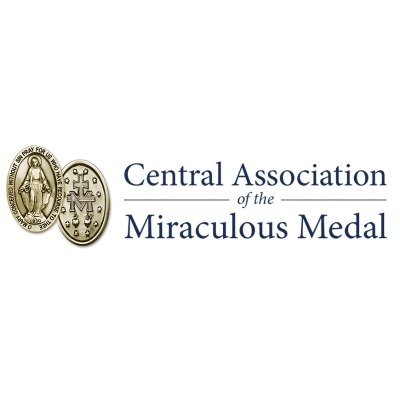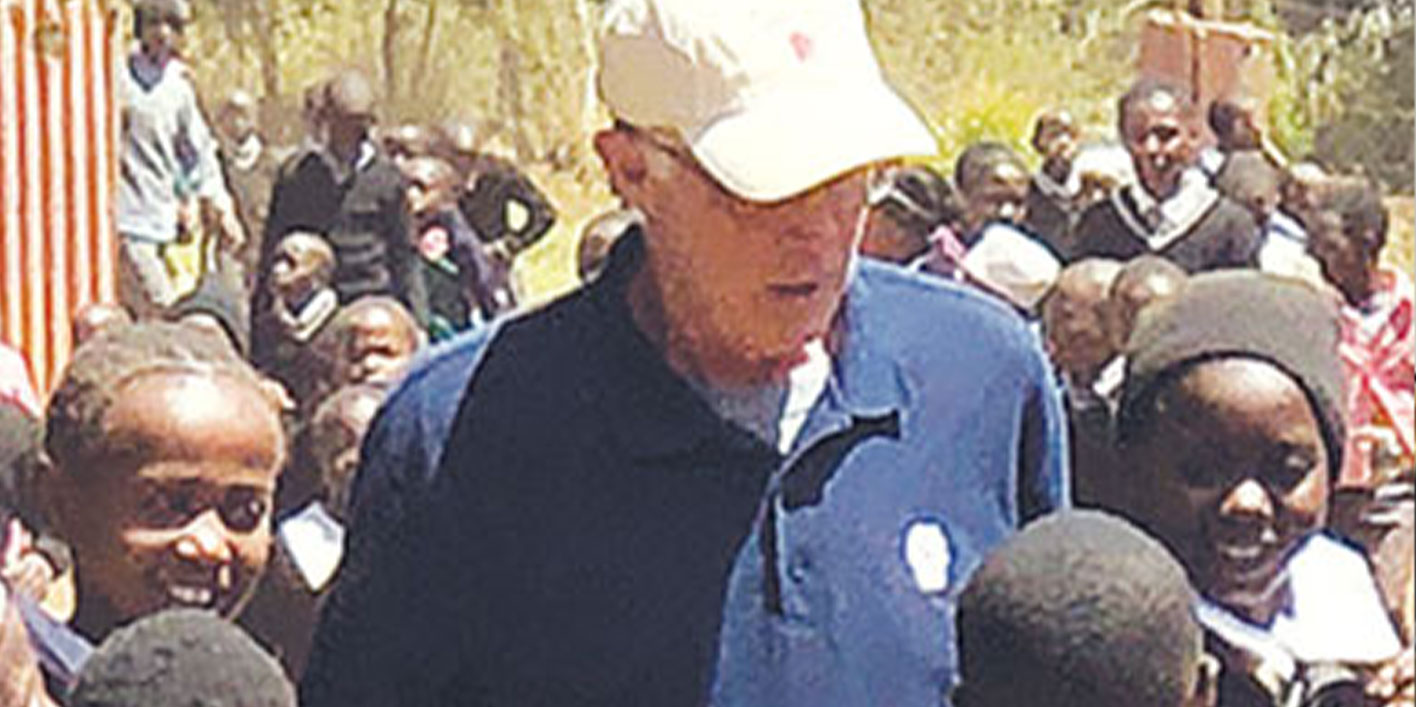KENYA Calling
For Fr. John Timlin, CM, a mission in Kenya was a gift from God. Upon his return to the States, he reflects on the lessons he learned from those who live in one of the worst slums in the world, where the Vincentians are needed most.
As a Philadelphia Vincentian in Kenya, Fr. John “Jack” Timlin, CM, doesn’t speak fluent Kiswahili, the lingua franca of Africa’s Great Lakes region. Yet, during his year serving in Kenya, he became quite familiar with the Kiswahili greetings, Habari. Karibu. Habari gani. Asanti, which translates as, “Hello. Welcome. What’s the news? Thank you.”
These words are indicative of a Kenyan culture that honors hospitality, as Fr. Timlin soon discovered. And welcome him they did, while he served from August 2018 to August 2019 as director of internal seminary in the Damascus House at the DePaul Center in Nairobi, Kenya (part of the Kenya region of the Vincentians of the Western Province).
The internal seminary is a yearlong, immersive experience for men who have completed their undergraduate philosophy degrees and are discerning a vocation with the Vincentians. Internal seminary provides formation for the men before they decide whether to follow “Christ evangelizing the poor,” as is the Vincentian charism.
If you ask Fr. Timlin what he, an American, was doing in Kenya directing four internal seminarians (three from Kenya, one from Uganda), he’ll answer, “It fell into my lap. It was a gift from God.”
For eight years, Fr. Timlin directed the internal seminary in Philadelphia, but from 2018-2019, there were no novices because the candidates had not reached full formation. By coincidence (or providence), the Kenyan internal seminary needed a director for that same year. Fr. Timlin sought and received the necessary permissions for the assignment, and embarked on his international mission.
He notes that directing the internal seminary in a foreign country is not as unusual at it may seem to someone outside of the Vincentians. “The basic structure of Vincentian formation is the same worldwide. We just take specific cultures into context.”
This basic structure includes five pillars of formation: spiritual, intellectual, communal, service to the poor, and human growth. While internal seminarians are introduced to these pillars, all Vincentians strive to be formed in these foundations throughout their lives. “We [Vincentians] believe we are always in formation,” explains Fr. Timlin. “It is a lifelong process.”
He wasn’t too worried about the language differences of directing an internal seminary in Africa. Most Kenyans in urban areas like Nairobi speak English (along with Kiswahili and tribal languages), so Fr. Timlin could easily communicate with the students. However, he needed to learn the nuances of how he was communicating. “The language is the same, but how you say something, and how the language is interpreted, is very specific to each culture. Early on, I had some stumbles in my approach, which was a learning experience for me.”
There were cultural differences outside of language, too. “The men in internal seminary were very slow to offer criticism; they have a deep respect for mentors and older people. And I’m an older guy,” laughs Fr. Timlin. “Also, their system of education is lecture-based. It took me some time to realize they weren’t going to offer opinions, and that I had to ask questions. They soon got used to sharing, and I’m glad they did, because they are bright men, who give great responses and insights.”
Despite any initial obstacles, Fr. Timlin is confident in his assignment. “I felt I could offer something to these men,” he says. “My approach was that I’ll just do the best I can with a spirit of enthusiasm and love, and God will do the rest.”
For Fr. Timlin, the best part of his Kenyan experience are the people— seminarians, Vincentians, Daughters of Charity, and lay co-workers—and the men, women, and children of Kenya, many of whom live in abject poverty.
He quickly notes, “At the Damascus House, we lived a simple life, but we were comfortable. However, if you go out into the surrounding villages, you see extreme poverty.”
In fact, four miles away is one of the largest slums in the world. It is a land of tens-of-thousands of people (the exact number is difficult to ascertain), who live in makeshift shanty-huts in packed communities, which lack basic necessities like running water, sewers, trash disposal, schools, or medical care.
Fr. Timlin relates countless stories about the Vincentians in Kenya working among the poor, but for him, one person exemplified the best spirit of service. Each Tuesday, while the internal seminarians were out on their respective apostolates, Fr. Timlin served at The Dream Center, a program run by the Daughters of Charity, which provides services for people living with HIV/AIDS. There, he met Momma Rosemarie, a lay collaborator and the center’s cook. He describes her as “a hardworking, kind, good person,” who had a simple, but profound, approach to her ministry. Momma Rosemarie told Fr. Timlin, “We have to be conscious of whom we’re serving and how. We don’t know what situation the people are coming from. And many of them are suffering. We have to be kind and prepare a good, nutritional meal for them.”
On Tuesdays, Fr. Timlin would minister alongside his fellow Kenyan Vincentian Priests, and was moved by what he witnessed. While Kenyans have great respect for their elders, many children and grandchildren are forced to leave to seek employment, so they are not able to attend to their older family members. Therefore, each and every Tuesday, the priests, who serve the parishes (often the poorest parishes), visit the sick and isolated elderly to administer the sacraments; evaluate their needs and determine how to provide what they need; and offer comfort and companionship.
“My fellow Kenyan Vincentians may have been giving themselves to those elders in need,” Fr. Timlin says, “but they received as much back. It was
very inspiring to join them each Tuesday in this important ministry.”
Fr. Timlin was moved by the many ministries he witnessed in Kenya. “In the eyes of the power brokers of the world, would they [the ministries] be earth-shattering? No. But to me they were, and they exemplified the mission of the Vincentians and the Daughters [of Charity], along with the men and women in formation.”
Being Vincentian always means a special devotion to the Blessed Mother, who already plays a significant role in Kenyan culture.
“The Kenyan people hold motherhood in high esteem, since motherhood is the source of life,” notes Fr. Timlin. “And since Our Lady is the Blessed Mother of Our Savior, she is honored with great devotion.” While there are many Marian shrines in that region of Kenya, Our Lady of the Miraculous Medal is a popular devotion. Along with a daily rosary, Fr. Timlin and the internal seminarians said the Miraculous Medal Novena together each Monday. To honor and support this devotion to the Miraculous Medal, The Central Association of the Miraculous Medal in Philadelphia donated thousands of medals to distribute to the townspeople where Fr. Timlin ministered.
By the summer of 2019, the internal seminarians in Kenya completed the portion of formation he was overseeing and are now moving forward on the long road to becoming incorporated Vincentians (vows) and priests. Fr. Timlin, too, moved on, returning to the States to direct a new class of internal seminarians in Philadelphia.
When reflecting on his mission in Kenya, Fr. Timlin is humbled by the experience. “I received more than I gave. It was a 50/50 deal. Or maybe 70/30—I got 70 percent, they got 30.”
Kenya also taught him a new way to live. “I brought back a desire to live more simply. I didn’t miss all the things we have here. I enjoyed what we had there. We enjoyed one another’s company.”
Despite how much he loved his time in Kenya, Fr. Timlin was ready to return home. “I admit that I missed my great nieces and nephews, my family [in America], and my confreres in Philadelphia, who love and support me, and I, them. That was in tension with the great joy of interacting with the people of Kenya.”
When asked if he’d go back to serve in Kenya again, Fr. Timlin doesn’t hesitate. “I’d be happy to go back to Kenya or another part of Africa.”
And without hesitation adds, “Vincentians go where we are asked to go. If I’m asked to go someplace else, I’ll say yes, and I’ll go. That’s what [Vincentians] do.”


